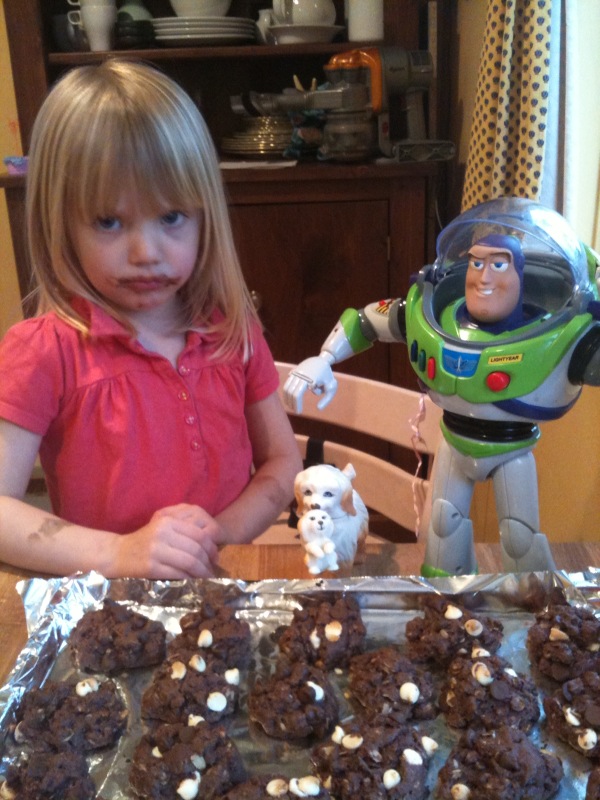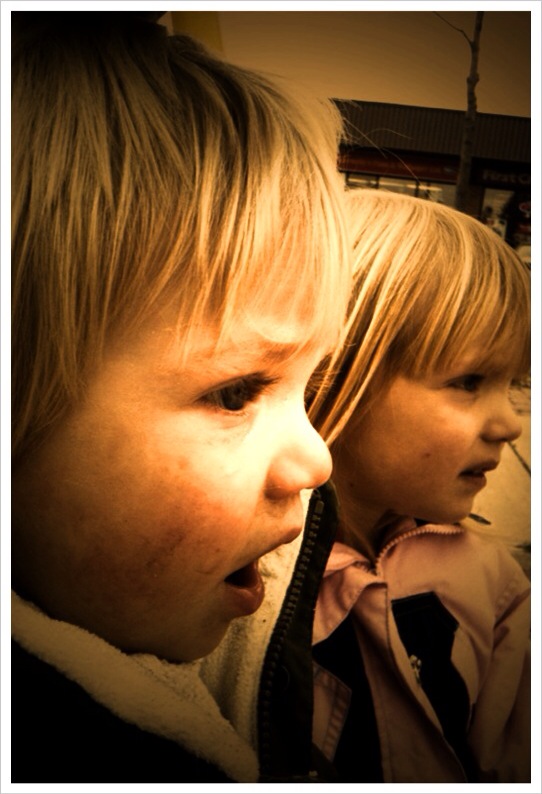I’m getting a little tired of all the cries and lamentations about how New Moon – the movie and the book and the Twilight series from which the latter are derived – is bad for you, bad for girls, bad for the world, bad, bad, bad. Because, really: it’s not. It just isn’t. So we should just all chill out about it.
I said my piece about why I think the Twilight series of books and movies is not so bad in this post. And in this one. And I stand by those arguments. But I’ll take them a step further, in response to the recent claim by Ms. Magazine that New Moon presents a ‘scary’ portrayal of love, and of a girl in love. These books/movies aren’t frightening. What’s really frightening are assertions that there’s only one right way to love or that there’s only one right way to deal with heartbreak or that any individual who is reluctant to let go of love is by definition weak and flawed.
Ms Magazine argues (among other things) that because the heroine, Bella, spends much of New Moon grieving her break-up with Edward, she’s a poor role model for young women. Because… why? Because ‘strong’ women always bounce back from break-ups? Because ‘strong’ women don’t really need partners and should never mourn the loss of one? Because if your heart gets broken and it hurts and you hide under your bed covers in pain, you’re weak and a disgrace to the feminist cause?
Bull.
Look, I wasn’t crazy about New Moon. The protracted narration of Bella’s heartbreak was kind of boring, and the development of her relationship with Jacob was kind of troubling (on this point I agree with Ms. Magazine, although I wouldn’t go so far as to declare it ‘scary’ or in any way threatening to the psyches of young women) and nothing really happened until near the end, when Bella rescues Edward (something that Ms. dismisses as not really all that empowering, just because) and so, meh. But ‘boring’ and ‘potentially corruptive of young minds’ are miles apart. Bella’s grief, and her persistence in pining for Edward, are, dare I say it, entirely realistic. Ever had your heart broken? Badly? It HURTS. This holds whether you’re seventeen or seventy (my mother never recovered from her separation from my father. Never. She went on with her life, and thrived, but she never let go of that love.) And I simply don’t see how or why acknowledging that fact is unfeminist. Didn’t Romeo and Juliet kill themselves over each other? A tad dramatic, to be sure – but when was the last time someone shook their fists angrily at Shakespeare for presenting such a ‘scary’ and disempowering depiction of love?
I’ve asked it before and I’ll keep asking it: why should there be anything unfeminist about love? Excepting abusive relationships – and Edward and Bella’s relationship is not abusive (he has his bossy moments, but so does she – more often than him, in fact, and it is always, end of day, Bella who gets her way) – why should anyone make it their business to dictate which relationships are appropriately ’empowering’ and which are not? All romantic relationships involve, to some degree, submission – how could we love fully if we did not concede some of our independence in these relationships? – and so to insist that the only acceptable relationships are those in which both parties maintain total independence to the extent that the collapse of said relationship would cause no more hurt than a lost business contract is, simply, unrealistic. And a denial of how love really works.
I don’t want my daughter to get her heart broken, ever. But she will. And when she does, I want her to know that it’s okay for it to hurt, that it’s normal for the pain of the heart to feel physical, that hiding under one’s blankets and sobbing is totally just fine. And I want to be able to trust that when she reads stories about love – whether those be from the Twilight series or the Sweet Valley High series or Shakespeare or Tolstoy or the Brontes – she’ll be able to recognize that some depictions of love are more dramatic than others and that one can feel as deeply as Juliet without needing to fling oneself on a blade like Juliet. Or in front of a train like Anna Karenina. Or (SPOILER ALERT) off a cliff like Bella. Or whatever.
Because raising a feminist means raising a girl – or a boy, for that matter – to think for herself. And to feel for herself. And to decide for herself how she wants to love and be loved. And I trust that if I do that right, all the Juliets – or Emmas or Janes or Annas or Bellas – in the world won’t lead her astray from her own, empowered heart.

